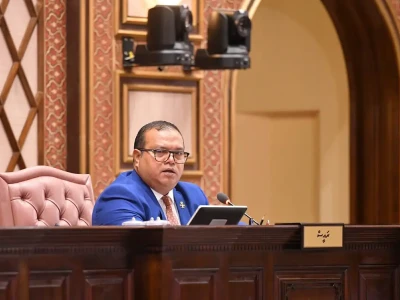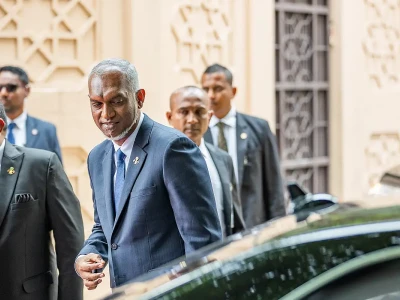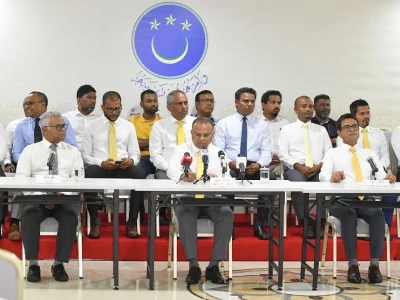
Govt seeks to nullify opposition advantage in impeachment process
The petition seeks the annulment of all three amendments made to the rules by the opposition.
Top Stories
By
Fathmath Ahmed Shareef
The government has filed a petition in the Supreme Court against the amendment to the parliament rules of procedure that had bent the impeachment process of the president and the VP in the favor of the main opposition MDP .
Atoll Times has learned that the Attorney General's Office has filed the case in the Supreme Court on Sunday. The petition seeks the annulment of all three amendments made to the rules by the opposition.
This move comes as the opposition garnered enough support to mount a no-confidence motion against incumbent President Dr. Mohammed Muizzu. But the opposition is yet file the motion, the parliament on Tuesday confirmed to Atoll Times.
On December 18, the parliament passed an amendment to the rules to allow the president or vice-president to be removed only by a vote of the opposition MDP and its current allies, the Democrats, who have a large majority in parliament.
According to the amendment:
-
The total number of members of the parliament shall be based on the number of the present sitting members
-
Seven PPM-PNC and MNP members in parliament resigned to take over the new government's cabinet and some senior posts, bringing the headcount in parliament to 80 members
-
Therefore, counting the total number of votes cast on the removal of the president and vice president and other matters can easily pass with the votes of MDP and Democrats members alone
Therefore, 54 votes will be required to remove the President or Vice-President from office in the current 19th Parliament.
In Parliament:
-
The number of Democrats is - 13
-
The number of MDP members is - 44
-
Total - 57
In addition to this, amendments to Articles 202 and 203 of the parliament rules expediting the process of the removal of the President or Vice-President were also passed by the committee.
According to these amendments:
-
Notice of such resolution shall be given to the President or Vice-President within two days, not exceeding public holidays, of receipt of the resolution; after the expiry of the 14-day notice, the motion shall be tabled in parliament on the earliest non-public holiday; the article did not specify a time period for such a resolution to be put on agenda
-
The debate in Parliament on the resolution shall not, in any case, exceed three hours; the President or Vice-President will be given 30 minutes to defend himself, while the remaining two hours and 30 minutes will be given to political parties and private members to debate
-
The resolution requires a seven-member committee to investigate the allegations; earlier, the rules called for an 11-member committee and it should have at least one member from each political party and an independent member
-
The President or Vice President shall have the right to appear and defend himself before the committee; a maximum of three lawyers may be used in defence
-
If the committee summons any person for questioning or wants to obtain a document for its inquiry into the resolution, at least two hours’ prior notice should be given
-
The committee must complete its work on the resolution within a maximum of five days of receipt of the matter and send it to the Speaker; With that, the report must be sent to the President or Vice-President for response and a written reply must be given within two days
-
The committee must vote on the report within five days of sending it to the Speaker.




